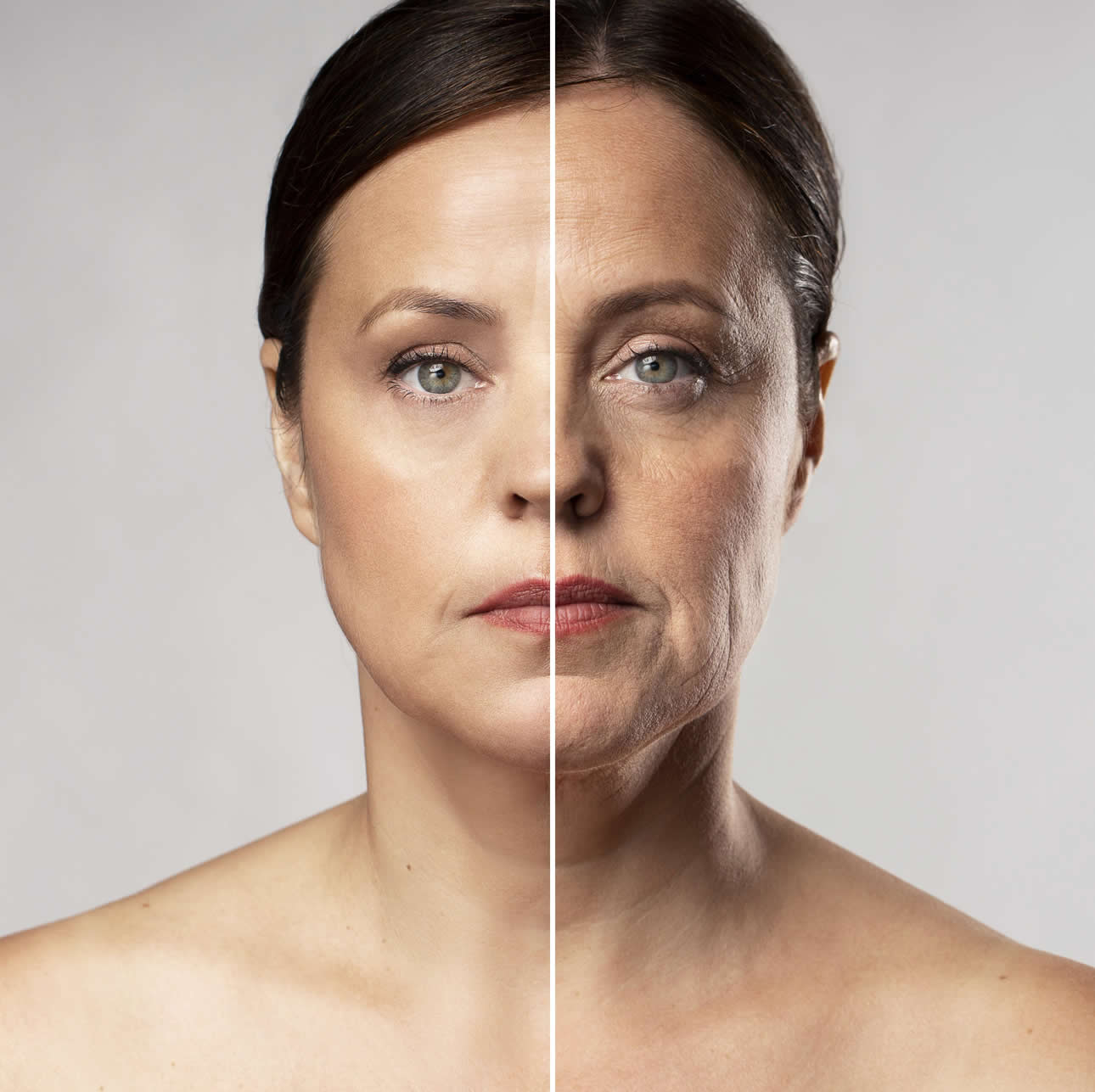Image by Freepik
Measurement and reversing biological age.
Introduction:
In our fast-paced modern world, (environmental and emotional) stress has become a common companion in our daily lives. It does not only affect our mental well-being but also it has profound effects on our physical health. One of the key factors associated with stress is its effect on our biological age.
Our ID card lies!
Modern science has come to understand that the chemistry created by the stress response in the body, when it exceeds an organism's resilience, disrupts cellular health. Our body's cells react with their environment (the intercellular fluid) through receptors on the cell membrane. If this environment is supportive, cell function is normal, but if it is toxic, cell function is disrupted which leads to disease. It has now been clarified by biology with the new science of epigenetics that the cell environment directly influences the expression of genes in the cell nucleus in various ways (jumping, changes in methylation, etc.).
This change in gene expression changes the phenotype of the cells and consequently how healthy an organism is.
It must be fully understood that we are not just born, but gradually become more and more different depending on how we live and feel!
One of the key and measurable health factors linked to stress is its effect on our biological age.
What is biological age?
Biological age refers to the state of health of a person as opposed to their chronological age. Unlike chronological age which is determined by the number of years lived, biological age depends on a number of factors, such as lifestyle, emotions, genetics and general health. (Klemera & Doubal, 2006).
70 years old 40 years old
For example, the calendar age or chronological age of an individual may be 55 years old, but due to a healthy and active lifestyle, their body may physiologically resemble an individual with a chronological age of 45. Therefore, this individual has a biological age of 45.
The effect of stress on biological age:
Chronic stress is known to accelerate the aging process at a cellular level because it leads to inflammation, impaired immune function and increased oxidative stress, all of which contribute to accelerating the biological aging process (Bektas et al., 2017; Fukagawa et al., 2000; Rösen et al., 2001).
Our scientific program:
At the Pythagorean Self-Awareness Program, we believein the power of lifestyle medicine to not only manage stress but also improve overall well-being. Our program combines stress reduction techniques based on the latest findings from the scientific community, which include nutrition, physical activity, sleep optimization and awareness practices. This integrated approach is designed not only to relieve stress but also to promote a healthier, more youthful biological age (Athanasopoulou et al., 2021).
Benefits of lowering biological age:
- Enhanced longevity: by lowering your biological age, you increase your chances of living a longer, healthier life.
- Better quality of life: a lower biological age is often associated with better physical and mental health, allowing you to enjoy life to the fullest.
- Increased resilience: a younger biological age means your body is better equipped to handle stressors, both physical and emotional.
Measuring your progress:
Through our program, you will have the opportunity to track changes in your biological age over time. This tangible evidence of your improved well-being serves as a powerful motivator in your journey toward a healthier, more balanced life.
Conclusion:
Investing in stress reduction is not just about feeling better today. It is about ensuring a healthier, more vibrant future. If you want to access the best version of yourself, join us in the Pythagorean Self-Awareness Program and begin a transformative journey to a younger, more energetic you.
Literature Resources:
Athanasopoulou, S., Simos, D., Charalampopoulou, M., Tentolouris, N., Kokkinos, A., Bacopoulou, F., Aggelopoulou, E., Zigkiri, E., Chrousos, G. P., & Darviri, C. (2021). Significant improvement of stress and aging biomarkers using a novel stress management program with the cognitive restructuring method” Pythagorean Self-Awareness Intervention” in patients with type 2 diabetes mellitus and healthy adults. Mechanisms of Ageing and Development, 198, 111538.
Bektas, A., Schurman, S. H., Sen, R., & Ferrucci, L. (2017). Human T cell immunosenescence and inflammation in aging. Journal of Leukocyte Biology, 102(4), 977–988.
Fukagawa, N. K., Timblin, C. R., Buder-Hoffman, S., & Mossman, B. T. (2000). Strategies for evaluation of signaling pathways and transcription factors altered in aging. Antioxidants and Redox Signaling, 2(3), 379–389.
Klemera, P., & Doubal, S. (2006). A new approach to the concept and computation of biological age. Mechanisms of Ageing and Development, 127(3), 240–248.
Rösen, P., Nawroth, P., King, G., Möller, W., Tritschler, H., & Packer, L. (2001). The role of oxidative stress in the onset and progression of diabetes and its complications: Asummary of a Congress Series sponsored byUNESCO‐MCBN, the American Diabetes Association and the German Diabetes Society. Diabetes/Metabolism Research and Reviews, 17(3), 189–212.
Our Programmes
 PYTHAGOREAN ACADEMIA RETREAT FOR STRESS MANAGEMENT, BIOLOGICAL AGE REVERSION, MEMORY IMPROVEMENT AND WELL – BEING
PYTHAGOREAN ACADEMIA RETREAT FOR STRESS MANAGEMENT, BIOLOGICAL AGE REVERSION, MEMORY IMPROVEMENT AND WELL – BEING

Measurement and reversing biological age.
One of the key factors associated with stress is its effect on our biological age.

Training professionals in the Pythagorean Self-Awareness Technique
The academy seeks to train and certify health professionals and other scientists on the theoretical and academic background of the technique by designing specific training programs.
Read More
Community programs
The academy aims to develop specially structured programs, with beneficiaries being members of the local community of Samos, in order to enhance and improve the health of the population.
Read More
